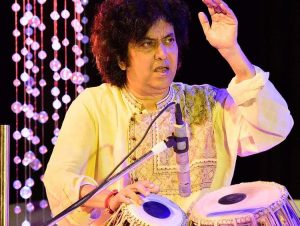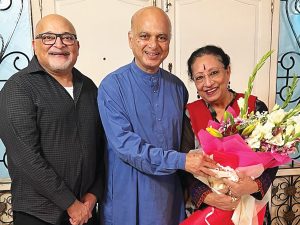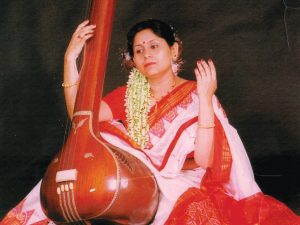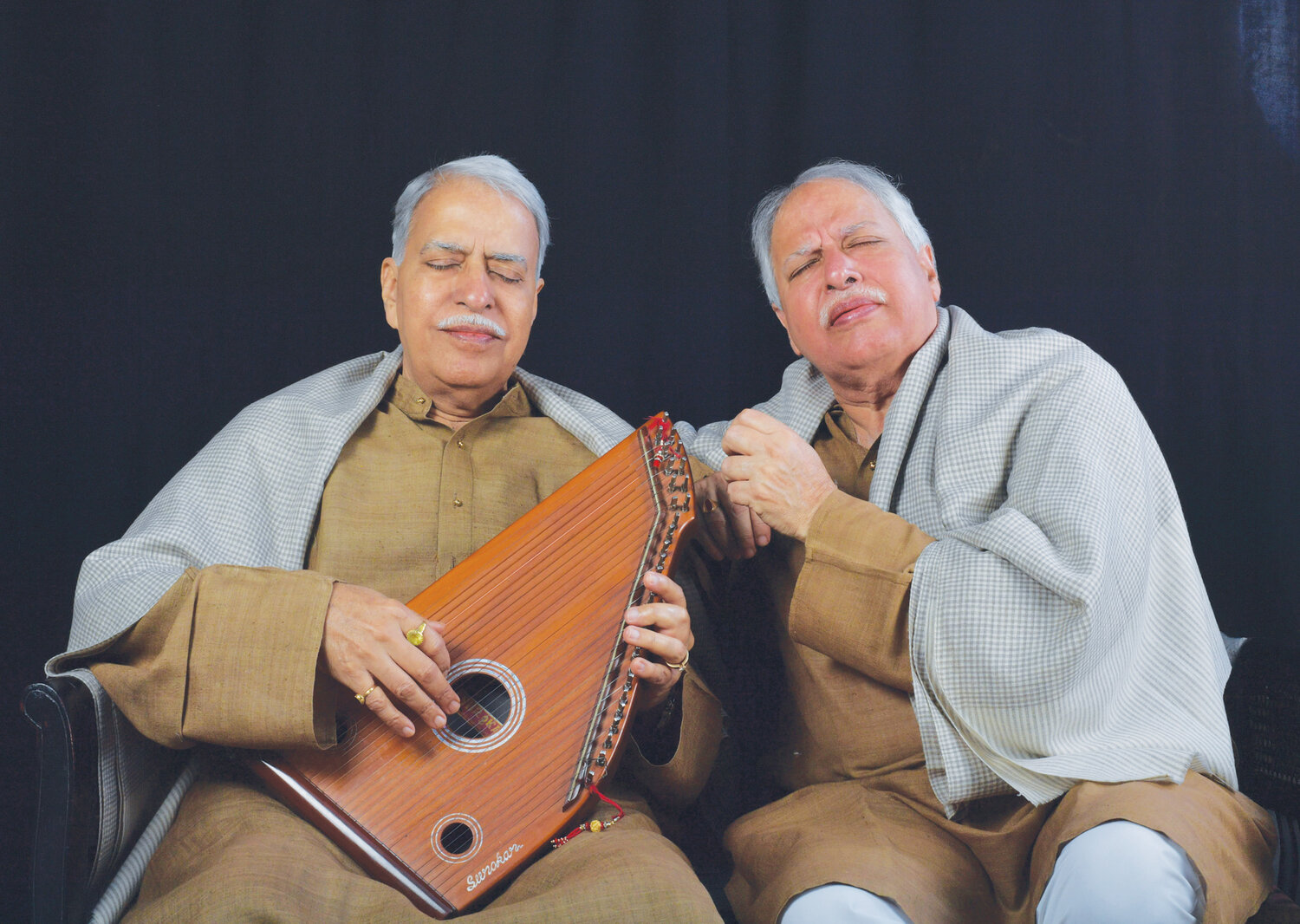
Pandit Rajan Misra: His Music is Immortal
Padma Bhushan Pandit Rajan Misra (1951-2021)
By MOHAMED KHAKI
I feel we have lost a close family member,” says Nishant Parekh, the newly-elected President of Raag-Mala Toronto, echoing a sentiment I have heard from many in the Indian music community at the shocking news of the passing of Pandit Rajan Misraji on April 25 due to COVID-19.
Saloni Gandhi, a close friend of Panditji who curated his Bhairav Se Bhairavi global tour in 2018/19, said that this sense of deep personal loss was being felt even by distant admirers due to Rajanji’s “groundedness” and a remarkable ability to relate to everyone at his/her own level.
I had the good fortune of experiencing Rajanji’s charisma firsthand during a week-long retreat in Goa with Panditji and his equally renowned brother and music partner Pandit Sajan Misraji in 2019. Saloniji had organized this retreat during the monsoon season focusing on the Malhaar raags, the melodies of the rainy season. The retreat was primarily for senior students, but a few music lovers were also invited.
While daily sessions were filled with teachings, knowledge and wisdom on the raags and other related topics (Rajanji was, after all, the most senior guru, the Khalifa, of the Benaras gharana), it was at other times that I personally experienced his warmth and utter lack of pretension.
Rajanji joined us at all meals, greeting each person with affectionate banter; conversations with him never felt scripted. He was always “present” and “in the moment” – conversing attentively, with humility and without the bravado that one might expect from other musicians at his level of achievement. It would be easy for one to forget that Pandit Rajan Misra received many prestigious awards including the Sangeet Natak Akademi award and the Padma Bhushan, the third highest civilian award in India.
After dinner each night, we gathered around Rajanji (Sajanji had to leave on the second day to attend to a family matter in Delhi) in the cavernous hall of the yoga center we were at. With the “taanpura” of constant rain as a backdrop, Panditji regaled us with anecdotes laced with good humour as well as sharp and witty stories about his gurus, other musicians, and life lessons acquired from a lifetime in music. Rajanji was also deeply influenced by Osho, the mystic Bhagwan Shree Rajneesh, whose teachings he quoted often.
One of my strongest memories from those evenings was seeing five or six students, some quite senior, massaging their guru’s legs, arms and shoulders. Watching this and having grown up outside of India, I thought to myself how irritating I would find that. It occurred to me later that it was an act of generosity on Rajanji’s part – he was giving his disciples a chance to serve their guru, in the same way that he had served his guru. No doubt all those students will cherish the memories of those evenings.
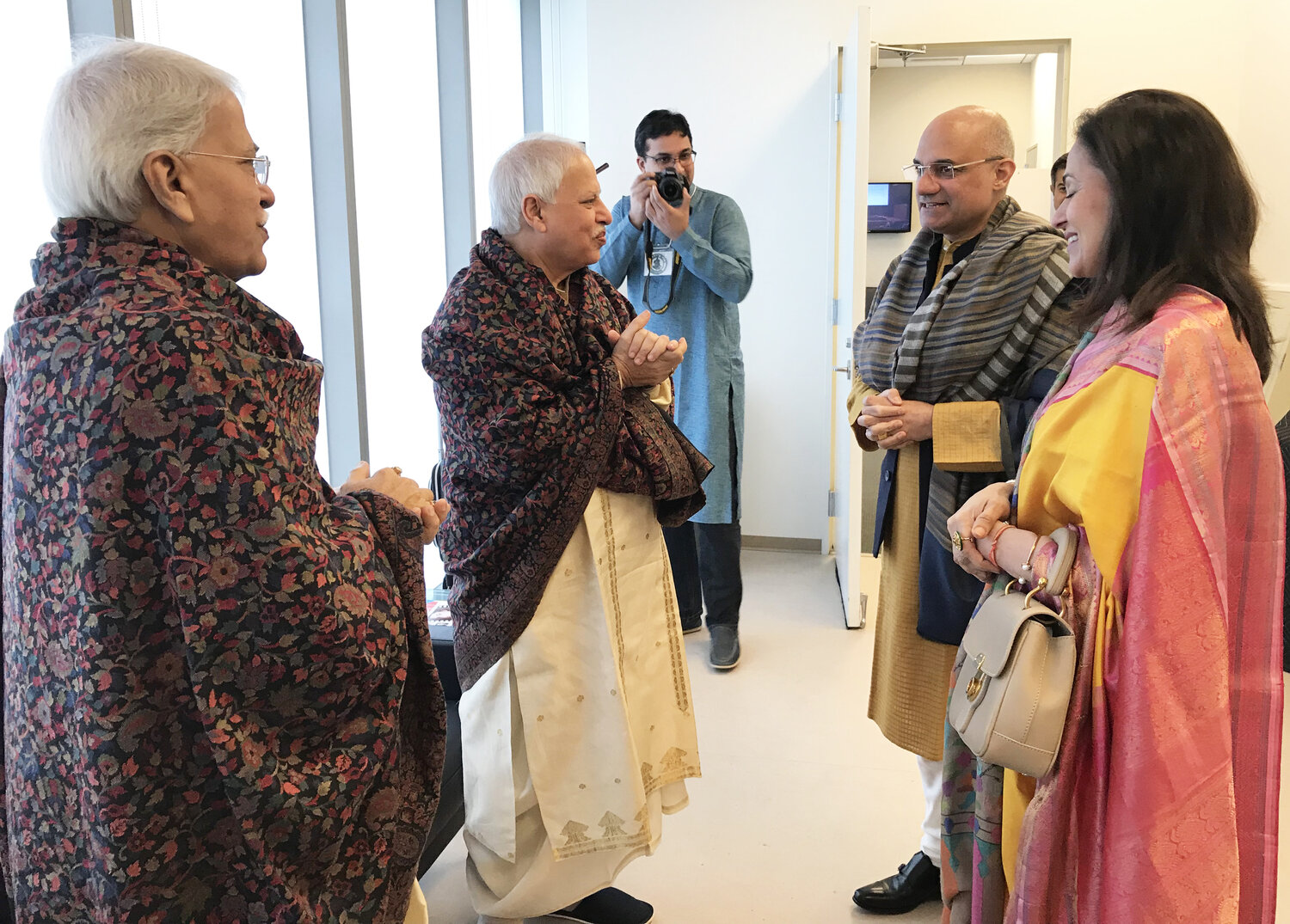
Rajanji, as one of the most approachable musicians, genuinely appreciated the warmth and affection that his fans showered on him. When Pankaj Mehra was a director at Scotiabank in 2011, he and others organized a private baithak of the Misra brothers. I then saw how Rajanji recognized Pankaj years later, after the Raag-Mala concert in April 2018, and chatted warmly with him.
Nishant Parekh fondly recalls how he had casually mentioned to Panditji a couple of days before our concert that Naadko na bhed paayo in raag Bhairavi was one of his favourite bhajans. Nishant was moved to tears (as were many others in the audience) when Panditji sang this bhajan at the concert. “He had not known me previously, and yet he was so obliging in singing this bhajan,” said Nishant.
The Misra brothers’ singing was steeped in spirituality. Rajanji would announce before the start of his concerts, “Sangeet hamari ibaadat hai, hamari pooja hai”. He then invited the audience to join them in their ibaadat, their pooja, their prayer.
Many of us are numbed at the losses brought by this pandemic. Yet Rajanji’s passing cuts very deeply. “It seems so unfair,” Saloniji said to me. “Panditji still had so much to share.” He had many plans for the future – reducing the number of public concerts, moving to Varanasi, and teaching senior students there and at the Tao Music Retreat being built in Gujarat.
Music lovers always talked about Rajan-Sajan Misra as a single entity; the brothers were twinned by name. Watching them in performance, I marvelled at the seamlessness of their singing. Their raagdari, the development of the raag’s narrative, was so well thought out and uncluttered that it was as if their thinking had merged while in performance. This was especially true in their bada khayals, where music lovers relished the elaboration and unhurried pacing of their performance.
Even as our thoughts go out to Sajanji, Rajanji’s family and the music fraternity for this unfathomable loss, I can imagine Panditji chuckling at the folly of our grief and our attachment to the ephemeral, worldly ties.
Rest in Peace, Pandit Rajan Misraji. Om Shanti.
• Mohamed Khaki is a Raag-Mala Team member.
 Previous Post
Previous Post Next Post
Next Post